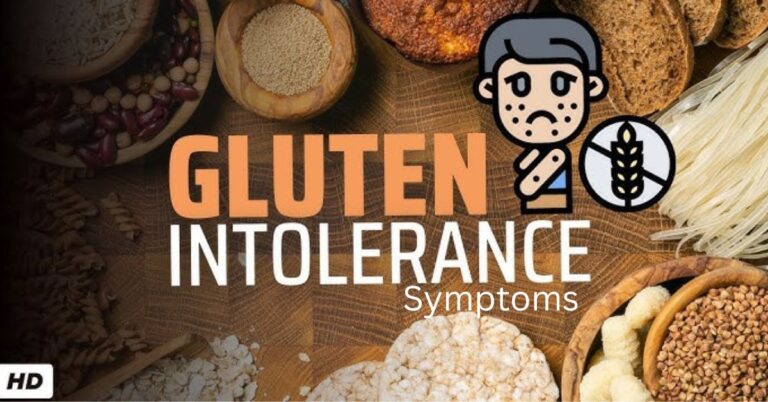What Happens to Your Body After 30 Days Gluten-Free Diet (Real Timeline)
The Gluten Free diet is for those who have celiac disease. Non celiacs can also follow this diet, but it causes several nutrient deficiencies.
A gluten free diet involves eating foods like fruits, vegetables, meats and gluten free products. It involves excluding the foods which contain protein called “gluten”. This protein is present in foods like wheat, barely, rye and spelt etc.
If You’re thinking of following a gluten free diet, then this article will answer your query: What happens to your body after a 30 days gluten free diet?
Is Gluten Harmful for Celiacs? Is Gluten Sensitivity the same as Celiacs?
Studies show that celiac disease affects every 1 out of 133 people in the U.S. A large number of people don’t know that they have celiac disease.

When people with celiac disease consume a gluten containing diet, their immune system attacks and harms the lining of the small intestine. When they repeatedly consume gluten, their body absorb less nutrient and many complications can arise such as:
- Anemia
- Weight Loss
- Osteoporosis
- Infertility
- Multiple Sclerosis
- Neurological Condition
Non celiac gluten sensitivity is less severe than celiac disease. Eating gluten containing food does not harm their lining of the small intestine but they feel discomfort after consumption of gluten.
The symptoms of gluten sensitivity includes:
- Headache
- Brain Fog
- Joint Pain
- Numbness in the extremities
Research shows that many people have more gluten sensitivity than celiac disease. Gluten sensitivity affects 0.5% to 13% of people.
What Happens to Your Body After 30 Days of Gluten Free Diet?

If you’re on a gluten free diet, keep in mind the gluten-free diet has several effects on the body. This diet affects mental as well as physical health.
There is little scientific evidence that a gluten free diet has health benefits for people without celiac disease or gluten sensitivity.
Improves Mental Health
Gluten Free diet improves focus level and mental clarity in celiacs. It’s easy to focus on a task and reduces brain fog as well.
If celiacs follow a gluten free diet, they can be more focused and productive. This diet also improves mood which leads to an increase in energy levels. It has been reported that anxiety levels begin to reduce in celiacs, when they follow a gluten free diet.
There’s evidence that a gluten free diet reduces depression symptoms in celiacs.
Improves Physical Health
People who have celiac disease or gluten sensitivity have reported that excluding gluten from diet can reduce the most of symptoms such as diarrhea, bloating, constipation and abdominal pain etc.
Gluten Free diet boosts energy levels in celiacs. They do not crash after meals and also feel better during workouts.
When celiacs follow a gluten free diet, their small intestine starts to function properly. It absorbs more nutrients which ultimately leads to a boost in energy levels.
Improves Digestion
When people with celiacs follow a gluten free diet, their intestinal villi will begin to function normally. This diet also improves digestive functions as well.
Gluten free diet also reduces inflammation in the body, so celiacs do not experience celiac disease symptoms such as pain and diarrhea.
Helps in Maintaining Weight
People with celiacs and gluten sensitivity report to have difficulties in maintaining stable weight, as their body doesn’t absorb nutrients. But celiacs can maintain consistent weight, if they follow a gluten free diet.
When people who don’t have celiac disease or gluten sensitivity follow a gluten free diet, they lose some weight. Because they cut down foods made with refined grains such as desserts, snacks and processed foods. They feel better after losing weight.
Leads to Higher Bone Density
Some people with celiacs disease can develop bone disease; poor bone density and osteoporosis. Because celiacs have poor intestinal health which leads to less absorption of vitamin and nutrients needed for bone development.
If you’re celiac and fighting against poor bone density, you should follow a gluten free diet. This diet allows many bone strengthening foods and also improves absorption of nutrients.
Provides Clearer Skin
People with celiacs also develop conditions like dermatitis herpetiformis. Due to this condition, their skin becomes itchy, bumpy and rashy.
People with celiacs reported that their skin conditions can get better after following a gluten free diet.
People with celiac disease can follow a gluten free diet to get health benefits with doctors advice. Gluten free diet involves excluding whole grains which are a source of fiber, vitamins and minerals. So the doctor prescribes vitamins and other supplements along with a gluten free diet.
What’s the Downfall of Gluten Free Diets?

Celiacs follow a gluten free diet to avoid any harmful symptoms such as nutrient deficiencies. If you’re following a gluten free diet for healthy lifestyles only, then remember that a gluten free diet has several downfalls for people without gluten related disease:
Risk of Nutritional Deficiency
Studies shows that gluten free diet causes deficiency of many nutrients such as:
- Protein
- Folate
- Fiber
- Zinc
- Selenium
- Iron
- Niacin
- Riboflavin
- Vitamin B12
This is because some gluten free foods lack these nutrients. So, the doctor will prescribe you vitamin and mineral supplements, if you feel weak or have a nutrient deficiency.
Causes Constipation
A study suggests that people who follow a gluten free diet may experience constipation.
A healthy bowel movement requires a fiber rich diet. But, a gluten free diet eliminates many sources of fiber such as bread, bran and wheat based products.
Higher Cost
If you have a tight budget, then a gluten free diet can be difficult for you.
The gluten free foods are more expensive because manufacturers require more money for strict testing. This testing ensures that the product is free of contamination.
A 2024 study suggests that gluten free pastas and breads sold in the U.S are about 2.7 to 4.5 more expensive then their gluten containing alternatives.
Difficulties while Socializing
When you’re on a strict gluten free diet, it is hard to socialize and engage in gathering. The social events generally have a food menu without any gluten free alternatives. This leads to the feelings of loneliness and isolation.
But, you can also socialize on a gluten free diet also. Just make sure to call a restaurant before to confirm if they offer a gluten free alternative.
So, if you’re thinking of following a gluten free diet, contact your doctor first. Your doctor will guide you to avoid nutrient deficiencies on a gluten free diet.
Some Effective Tips for Gluten Free Diet

If you’re on gluten free diet, make sure to follow these tips to avoid any discomfort:
- Always check the food labels to identify gluten free foods.
- Tell your friends that you’re following a gluten free diet. This will make your friend choose restaurants which offer gluten free foods.
- If you’re on trip, make sure to search the shops or places to eat beforehand. Otherwise, choose to eat vegetables, fruits and lean protein.
- If you’re sharing a kitchen with your friends or relatives, make sure to use separate utensils to avoid any contamination.
- If you’re visiting your family, you can carry gluten free food with you to feel at more ease.
Remember, if you don’t have celiac disease or gluten sensitivity, you don’t have to follow this diet. While a gluten diet is beneficial for celiacs, it may not be suitable for all people.
There are some more awareness about gluten you need to know:
8 Gluten Intolerance Symptoms That Don’t Show Up on Standard Tests
Is It Gluten or Something Else? How to Tell When Your Gut Acts Up
Conclusion
A gluten free diet is essential for people with celiacs and gluten sensitivity. This diet can improve many celiacs disease symptoms such as diarrhea, boating and constipation etc.
Gluten Free diet involves excluding whole grains foods which are the major sources of protein, vitamin and many nutrients. Following a gluten free diet without any supplements can lead to nutrient deficiencies.
If you’re planning to follow a gluten free diet, make sure to contact the doctors for guidance.



